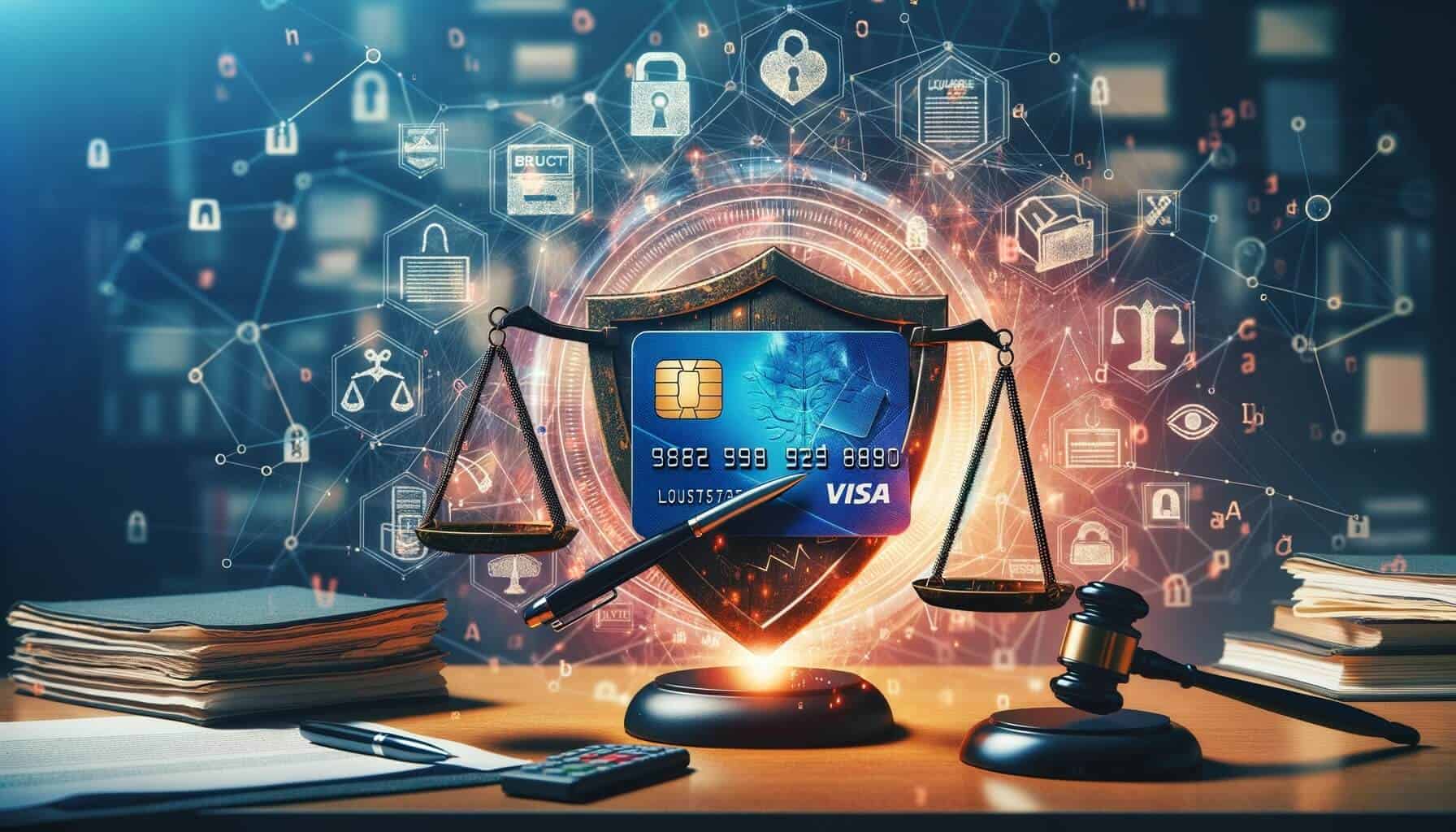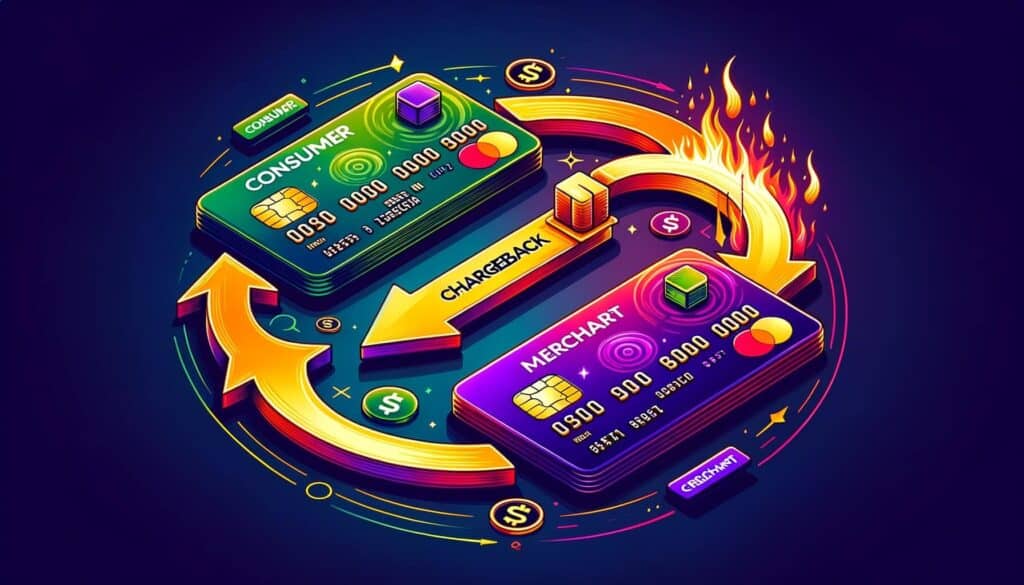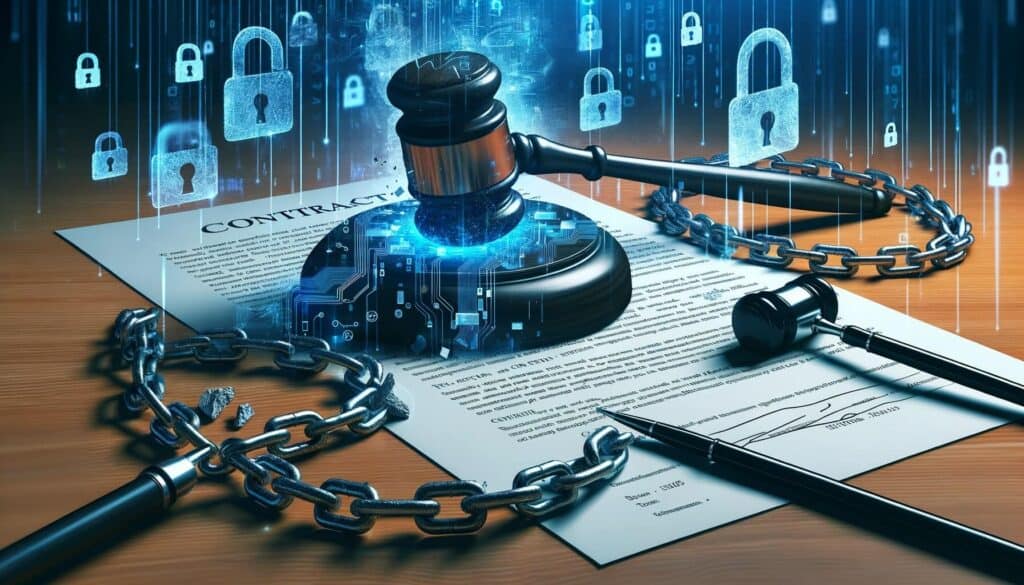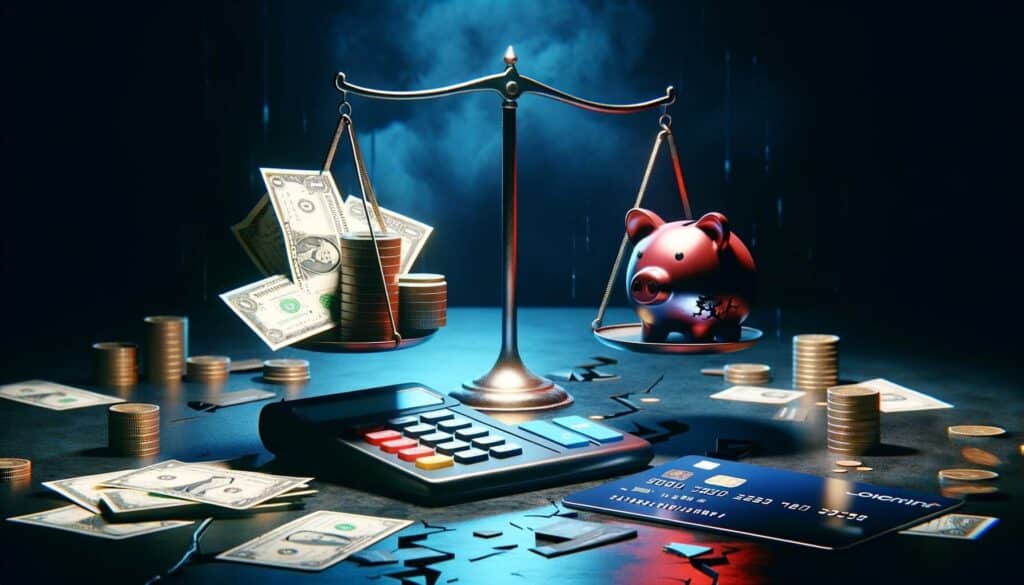
By Harriet Forster January 15, 2025
In today’s digital age, online shopping has become increasingly popular, allowing consumers to conveniently purchase goods and services from the comfort of their homes. However, with this convenience comes the risk of encountering fraudulent sellers or receiving unsatisfactory products. To protect consumers, credit card companies offer a chargeback process, which allows cardholders to dispute transactions and request a refund. While chargebacks serve as a valuable tool for resolving legitimate disputes, filing a false chargeback claim can have severe consequences.
In this article, we will explore the various implications of filing a false chargeback claim, including legal and financial repercussions, impact on credit scores, potential criminal charges, and how merchants respond to such claims.
What is a Chargeback and How Does it Work?

Before delving into the consequences of filing a false chargeback claim, it is essential to understand what a chargeback is and how it works. A chargeback is a process initiated by a cardholder to dispute a transaction and request a refund from their credit card issuer. It serves as a consumer protection mechanism, allowing individuals to seek recourse when they believe they have been a victim of fraud, received damaged goods, or experienced other issues with a purchase.
To initiate a chargeback, the cardholder must contact their credit card issuer and provide evidence supporting their claim. The issuer then investigates the dispute and determines whether the charge is valid or should be reversed. If the chargeback is successful, the cardholder receives a refund, and the merchant’s account is debited for the disputed amount.
The Importance of Accurate and Valid Chargeback Claims

Accurate and valid chargeback claims are crucial for maintaining the integrity of the chargeback process. When consumers file legitimate chargebacks, it helps protect them from fraudulent sellers and encourages merchants to provide quality products and services. However, filing false chargeback claims undermines the effectiveness of the system and can have severe consequences for both consumers and merchants.
One of the primary reasons for the importance of accurate and valid chargeback claims is the potential for abuse. If consumers realize they can file false claims without repercussions, it creates an incentive for dishonest individuals to exploit the system for personal gain. This not only harms merchants who may be unfairly penalized but also drives up costs for all consumers as businesses pass on the expenses associated with chargebacks.
Legal Implications of Filing a False Chargeback Claim

Filing a false chargeback claim can have significant legal implications for the individual making the claim. While laws may vary depending on the jurisdiction, intentionally filing a false claim is generally considered fraud and can result in civil and criminal penalties.
In civil cases, merchants have the right to pursue legal action against individuals who file false chargeback claims. If a merchant can prove that a chargeback claim was made with malicious intent or with knowledge that the claim was false, they may be entitled to damages. These damages can include the disputed amount, any fees associated with the chargeback, and additional compensation for the harm caused to the merchant’s reputation or business.
In more severe cases, filing a false chargeback claim can lead to criminal charges. Fraudulent chargebacks are often considered a form of theft or deception, and individuals found guilty may face fines, probation, or even imprisonment. The severity of the penalties will depend on the jurisdiction and the specific circumstances of the case.
Financial Consequences for Filing a False Chargeback Claim

In addition to potential legal repercussions, filing a false chargeback claim can have significant financial consequences for the individual making the claim. When a chargeback is initiated, the merchant’s account is debited for the disputed amount. If the claim is found to be false, the merchant has the right to recover these funds.
To recover the funds, merchants may employ various methods, such as debt collection agencies or legal action. These additional costs incurred by the merchant can be passed on to the individual who filed the false claim. In some cases, merchants may also impose penalties or fees for the inconvenience caused by the false chargeback.
Furthermore, repeatedly filing false chargeback claims can result in the individual being blacklisted by credit card companies and payment processors. This can make it difficult for the person to obtain credit or engage in future financial transactions, as their credibility and trustworthiness may be called into question.
Impact on Credit Score and Future Financial Transactions
Filing a false chargeback claim can have a detrimental impact on an individual’s credit score and future financial transactions. Credit scores play a crucial role in determining a person’s creditworthiness and can affect their ability to secure loans, obtain favorable interest rates, or even rent an apartment.
When a chargeback claim is filed, it can lead to a negative mark on the individual’s credit report. This negative mark can lower their credit score and make it more challenging to access credit in the future. Lenders and financial institutions may view individuals with a history of filing false chargeback claims as high-risk borrowers, leading to limited options and less favorable terms.
Additionally, credit card companies and payment processors may flag individuals who have a history of filing false chargeback claims. This can result in increased scrutiny of future transactions, additional verification requirements, or even the closure of the individual’s accounts. These consequences can significantly impact an individual’s ability to engage in financial transactions and may lead to a loss of trust from financial institutions.
Potential Criminal Charges for Fraudulent Chargeback Claims
As mentioned earlier, filing a false chargeback claim can potentially lead to criminal charges. The severity of these charges will depend on the jurisdiction and the specific circumstances of the case. In some jurisdictions, fraudulent chargebacks can be classified as theft, fraud, or even perjury.
The penalties for these criminal charges can vary widely. In less severe cases, individuals may face fines or probation. However, in more egregious cases, individuals may be sentenced to imprisonment. The length of the sentence will depend on factors such as the amount of money involved, the intent behind the false claim, and the individual’s criminal history.
It is important to note that the consequences of criminal charges extend beyond legal penalties. A criminal record can have long-lasting effects on an individual’s personal and professional life. It can hinder employment opportunities, limit travel options, and damage personal relationships. Therefore, it is crucial to understand the potential consequences before filing a false chargeback claim.
How Merchants Respond to False Chargeback Claims
When merchants receive a false chargeback claim, they have the right to dispute the claim and provide evidence to support their case. Merchants typically respond to false chargeback claims by gathering relevant documentation, such as proof of delivery, customer communication records, or evidence of the product’s condition at the time of sale.
Once the merchant has compiled the necessary evidence, they submit it to the credit card issuer for review. The issuer then evaluates the evidence provided by both parties and makes a determination regarding the validity of the chargeback claim. If the evidence supports the merchant’s case, the chargeback may be reversed, and the funds returned to the merchant’s account.
In some cases, merchants may also choose to pursue legal action against individuals who file false chargeback claims. This can involve filing a lawsuit to recover damages or working with debt collection agencies to collect the disputed funds. Merchants may also report individuals to credit bureaus or payment processors, which can result in restrictions or limitations on the individual’s ability to engage in future financial transactions.
Steps to Take if You Accidentally Filed a False Chargeback Claim
If you realize that you have accidentally filed a false chargeback claim, it is important to take immediate action to rectify the situation. While unintentional mistakes can happen, it is crucial to address them promptly to minimize the potential consequences.
The first step is to contact your credit card issuer and explain the situation. Provide them with all the relevant details and evidence that support your claim of accidental filing. It is essential to be honest and transparent throughout the process to demonstrate your intent to rectify the mistake.
The credit card issuer will then review your case and determine the appropriate course of action. In some instances, they may be able to reverse the chargeback and restore the funds to the merchant’s account. However, it is important to note that the outcome will depend on various factors, including the specific circumstances of the case and the policies of the credit card issuer.
In addition to contacting your credit card issuer, it is advisable to reach out to the merchant involved in the dispute. Apologize for the mistake and explain that you have taken steps to rectify the situation. This open communication can help rebuild trust and potentially prevent further action from the merchant’s side.
FAQs
Q1. Can I file a chargeback claim if I am unsatisfied with a product or service?
Yes, you can file a chargeback claim if you are unsatisfied with a product or service. However, it is important to ensure that your claim is accurate and valid. Filing a false claim can have severe consequences.
Q2. How long does it take for a chargeback claim to be resolved?
The time it takes for a chargeback claim to be resolved can vary depending on various factors, such as the complexity of the case and the responsiveness of the parties involved. In general, it can take anywhere from a few weeks to several months.
Q3. Can I dispute a chargeback decision if I believe it is unfair?
Yes, you can dispute a chargeback decision if you believe it is unfair. You can provide additional evidence or documentation to support your case and request a review of the decision.
Q4. Can a merchant sue me for filing a false chargeback claim?
Yes, a merchant can sue you for filing a false chargeback claim. If they can prove that you knowingly filed a false claim with the intention to defraud them, they may seek legal action to recover their losses and potentially obtain additional damages.
Conclusion
In conclusion, filing a false chargeback claim can have severe consequences for both consumers and merchants. It undermines the integrity of the chargeback process, increases costs for all consumers, and can lead to legal and financial repercussions for the individual making the false claim.
To avoid false accusations, it is crucial to exercise responsible use of chargeback claims. Before initiating a chargeback, thoroughly review the transaction and gather all relevant evidence to support your claim. Ensure that your claim is accurate and valid, as filing a false claim can have far-reaching consequences.
If you accidentally file a false chargeback claim, take immediate action to rectify the situation. Contact your credit card issuer and the merchant involved, providing them with all the necessary information and evidence. By taking responsibility for your mistake and working towards a resolution, you can minimize the potential consequences and maintain your credibility as a consumer.
Ultimately, responsible use of chargeback claims is essential for maintaining a fair and effective system that protects consumers and encourages merchants to provide quality products and services. By understanding the consequences of filing a false chargeback claim and exercising caution when initiating a dispute, consumers can navigate the online marketplace with confidence and integrity.